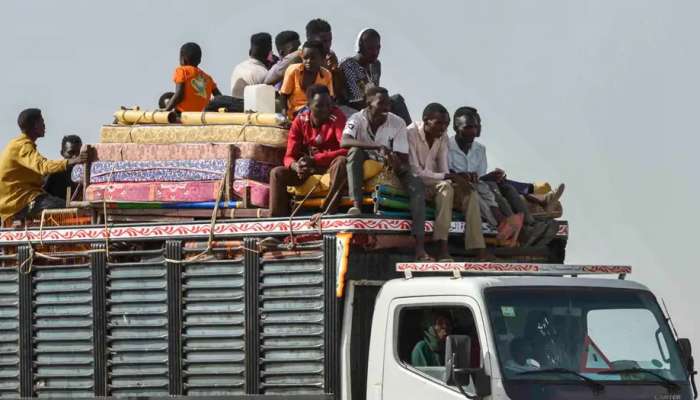
Khartoum: A raging conflict in Sudan has driven more than 3.1 million people from their homes, the United Nations said on Wednesday.
More than 2.4 million people have been displaced internally and more than 730,000 have fled to neighboring countries, the International Organisation for Migration (IOM) estimated.
Most have fled from the capital Khartoum, the focus of a power struggle between the army and the paramilitary Rapid Support Forces (RSF).
IOM said more than 72% of those displaced were from Khartoum and around 9% were from West Darfur province.
Sudan has plunged into chaos since mid-April, which turned the capital and other urban areas into battlefields.
Of those leaving Sudan, the majority have traveled north into Egypt or west into Chad, with a large number also crossing into South Sudan and Ethiopia.
Egypt is hosting the largest number of those who fled — more than 255,500 people, followed by Chad with over 238,000 and South Sudan with around 160,800, the IOM said.
More than 62,000 people fled to Ethiopia, more than 16,700 to the Central African Republic and around 3,000 to Libya, it added.
What is the situation in Sudan
Residents reported the sound of fighter jets and artillery shelling in Omdurman and Bahri, parts of the wider capital, on Wednesday.
Fighting has also been reported in recent days between the army and powerful rebel factions in South Kordofan State and in Blue Nile State.
"This war won't end shortly," said United Nations special envoy Volker Perthes, speaking from Belgium. A number of cease-fire agreements have failed to hold and fighting has since resumed.
Civilians have faced widespread looting, power cuts, food and water shortages and a collapse in health services.
A spike in sexual violence has also been reported. In Khartoum, nine new cases of sexual assault were recorded, bringing the total since mid-April to 51, the Sudanese government's Combating Violence against Women and Children unit said on Tuesday.
The real number of cases was likely much higher, it added.
International and regional efforts to establish a negotiated cease-fire have failed so far. Humanitarian agencies were not able to provide support to civilians still trapped in the conflict.
UN Secretary-General Antonio Guterres warned over the weekend that the country was on the brink of a "full-scale civil war.”